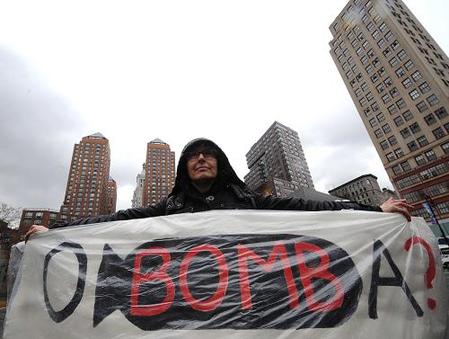
|
|
US anti-war demonstrators stage a protest in New York, the United States, March 19, 2009, marking the 6th anniversary of the start of Iraq war. [Xinhua]
|
Lesson learned?
The change of government in the United States shifted policymakers' perceptions of the war.
For former President George W. Bush, the war was his signature foreign policy and a center ground for "war on terror".
But Obama is not looking that way. He has been advocating for shifting the focus to Afghanistan since the beginning of his presidential campaign.
Andrew Bacevich, a scholar at Boston University, said the president is going to transform Iraq into a "secondary theater" in his new policy framework.
Some observers said Iraq can hardly be a priority for Obama, whose energy is largely consumed by the economic crisis, and even his focus in the Middle East is Iran, not Iraq.
Former deputy national security advisor Meghan O'Sullivan and other analysts point out that although the president has mapped out a clear war policy on Iraq, his political strategy for Iraq is not obvious.
As Bacevich has noted, shifting focus from Iraq to Afghanistan may not be a good way to draw lessons from Iraq.
Sticking to such a plan, he argues, will probably repeat Bush's errors in Iraq.
Philip Bennett, former managing director of The Washington Post, spoke about another "inconvenient truth" of the US mentality towards the war.
During active discussions on the lessons of the Iraq war among the country's elites, a point is missing: "Where are the Iraqis?," he wrote recently.
For many Americans, the war is a "gain or lose" for their country, but there is not much serious talk about the sufferings and feelings of the Iraqis.
"As US officials apply the lessons of the Iraq war to the strategy in Afghanistan, they risk missing a central part of the story," Bennett wrote.